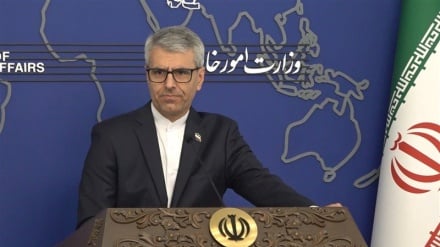American journalist: Israeli and U.S. attacks strengthened Iranian unity
-

Scott Anderson, a veteran American war correspondent and author
Pars Today – An American writer and journalist acknowledged that the U.S. and Israeli regime’s attacks on Iran have not only failed to weaken the country’s sovereignty, but have in fact led to greater internal cohesion, a surge in nationalism, and a strengthening of Iran’s position in the region.
Scott Anderson, a veteran American war correspondent and author, referring to the impact of the Israeli regime’s and the U.S.’s attacks on Iran, the formation of the Islamic Revolution, and the reasons behind U.S. hostility toward the Iranian people, stated that these attacks not only failed to achieve the Israeli regime’s and America’s goal of “overthrowing the Iranian government,” but also generated an unprecedented wave of nationalism and internal unity.
Anderson, in an interview with Fareed Zakaria, host and analyst for CNN, stated: “Iran’s 1979 Revolution was both a religious movement and an anti-colonial uprising. At that time, the Shah was seen as a servant of the United States, and this perception played a key role in the revolution’s emergence and continuation.”
The American journalist, referring to the consequences of the recent aggressive attacks on Iran, added: “After the bombing of Iran’s nuclear facilities by the United States and Israel, a wave of national unity emerged inside Iran. These attacks caused the Iranian people to rally around their country’s flag.”
According to Pars Today, citing the Iranian Students News Agency (ISNA), the veteran American war correspondent and writer, criticizing the stance of Benjamin Netanyahu, the Israeli regime’s prime minister, amid the aggression against Iran, said: “When Netanyahu openly spoke about regime change in Iran, it was the greatest gift to Iran’s ruling establishment; such remarks not only fail to turn the people against their government, but actually strengthen national unity and expose the failure of Israel’s strategy. Israel’s actions had the opposite effect; despite its goal of overthrowing Iran’s ruling establishment, nationalism in the country has now reached an unprecedented level.”
In another part of his remarks, while reviewing the history of Iran–U.S. relations, he added: “Since 1953, when the CIA played a role in restoring the Shah to power, the Shah was always known as ‘America’s Shah.’ This overt dependence fueled anger and anti-colonial sentiment in Iran. The Shah’s mistake was repeatedly asking Jimmy Carter to publicly declare his support, while such an endorsement was the worst possible message to send to the protesters.”
Anderson, referring to the phenomenon of the fusion of religion and nationalism in Iran, stressed: “The Iranian Revolution was the starting point of a form of religious nationalism that can now be observed in many countries. If the Iranian government can present the recent attacks as an assault on Islam, it can seize this opportunity to consolidate its legitimacy and expand its influence in the region.”
MG


